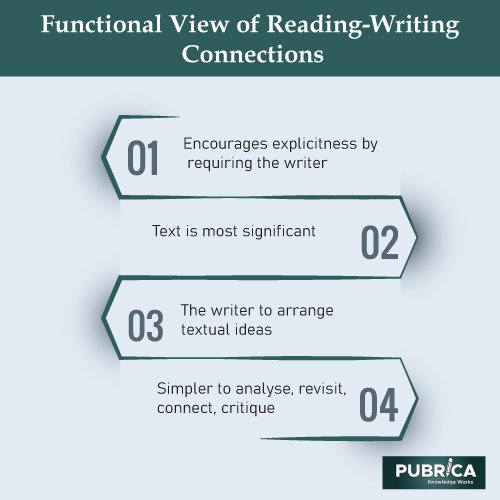
How do you write an original research article and have it published?
January 3, 2022
A Meta-Analysis of population studies on the prevalence of chronic pain in UK
January 12, 2022In brief
Students’ success in and out of school is dependent on their ability to read, and writing is one way to help beginners improve their reading skills. Graham and Herbert present evidence in this meta-analysis of accurate and quasi-experiments that are Writing on what students have read enhances their understanding of it; teaching students how to write helps their comprehension of what they have read, fluency, and word reading, increasing the amount of writing students do strengthen their reading comprehension. These findings back up long-held assumptions about Meta-Analysis Writing Services ability to help people read more effectively.
Introduction
Reading is one of the most critical abilities for kids to learn to succeed in school, work, and life. Students’ ability to read and critically evaluate the information offered in textbooks and other school materials is crucial to their educational progress. Most white-collar and blue-collar industries require high reading abilities, and forecasts estimate that the share of new employment requiring strong reading skills will rise. Reading is ingrained in the fabric of twenty-first-century existence, as e-mailing, blogging, texting, Facebook, and other kinds of written communication have become commonplace. Written language pervades everyday life, from publicly visible advertisements on billboards and the sides of buses to information on daily necessities like food cans and prescription bottles. As a result, Meta-Analysis Experts training will likely increase pupils’ reading abilities. Three theoretical viewpoints are especially useful in comprehending the potential influence of writing on reading.
According to the functional view of reading-writing connections
- It encourages explicitness by requiring the writer to choose whatever information in the text is most significant.
- It is integrative in that it pushes the writer to arrange textual ideas into a cohesive whole, creating clear linkages between them.
- It makes it simpler to analyse, revisit, connect, critique, and develop new understandings of text ideas since writing is permanent.
Meta-analysis is a technique for summarising the direction and amount of effects found in a collection of empirical investigations looking at the same underlying phenomenon. The Carnegie Corporation of New York financed the Writing a Meta-Analysis Paper detailed in this article, and the evidence utilised to answer each question came from either genuine or quasi-experiments. A writing treatment (e.g., writing a summary of text read) is contrasted to a control condition (e.g., reading and rereading text) in both types of trials to see how it affects reading.

Method Study Inclusion and Exclusion Criteria
Studies had to meet the following six criteria to be included in this review:
- Included at least one reading measure that assessed the writing treatment or condition; quasi-experimental studies were required to provide a similar pretest reading measure because students were not randomly allocated to needs.
- Students in grades 1–12 who are involved
- It was released in English and Included all of the data needed to calculate weighted effect size (or statistics were obtained from the authors)
Search Strategies Used to Locate Studies
To identify 260 computerised searches in four databases to find potential studies for this review: ERIC, PsychINFO, Education Abstracts, and ProQuest (including Dissertation Abstracts International). Both of us read each item found in these searches (more than fourteen thousand). Received an object if its abstract or title was promising (agreement between us was 99.2 %, with disagreements resolved by Graham).
Study Feature Coding
Research characteristics, quality markers, and variables needed to determine effect sizes were all entered for each study. Grade, student type (e.g., struggling writers, English language learners, etc.), number of participants, location, treatment length, participant training, treatment description, control condition description, subject, genre, outcome measures, publication type, and research design were among the study descriptors.
Statistical Analysis of Effect Sizes
A weighted random-effects model was used in our meta-analysis. We derived an average weighted ES for each of the three study topics (weighted to take into account sample size by multiplying each ES by its inverse variance).
Future Research
This review looks at and summarises the findings of past experimental and quasi-experimental studies on the influence of Clinical Meta-Analysis Experts and writing training on students’ reading abilities. While a substantial body of study (ninety-five investigations) has developed throughout time, the research foundation includes several flaws and deficiencies. One drawback is the poor quality of the research offered, and there is an opportunity for improvement.
Concluding Comments
The sound effects of writing about what you’ve read, writing training, and more time spent writing are all mentioned in this review. While writing and writing instruction should not be used in place of reading instruction, the writing treatments we look at here give teachers more options to help children improve their reading skills. It’s crucial to note that putting research-based therapies in place, such as the ones examined here, is a time-consuming and challenging undertaking.
About Pubrica
Pubrica’s team of researchers and authors develop Scientific and medical research papers that can be indispensable tools to the practitioner/authors. Pubrica medical writers help you write and edit the introduction by introducing the reader to the shortcomings or empty spaces in the identified research field. Our experts know the structure that follows the broad topic, the problem, and background and advance to a narrow topic to state the hypothesis.
References
- Graham, Steve, and Michael Hebert. “Writing to read: A meta-analysis of the impact of writing and writing instruction on reading.” Harvard educational review 81.4 (2011): 710-744.
- Wilson, Matthew L., Albert D. Ritzhaupt, and Li Cheng. “The impact of teacher education courses for technology integration on pre-service teacher knowledge: A meta-analysis study.” Computers & Education 156 (2020): 103941.
